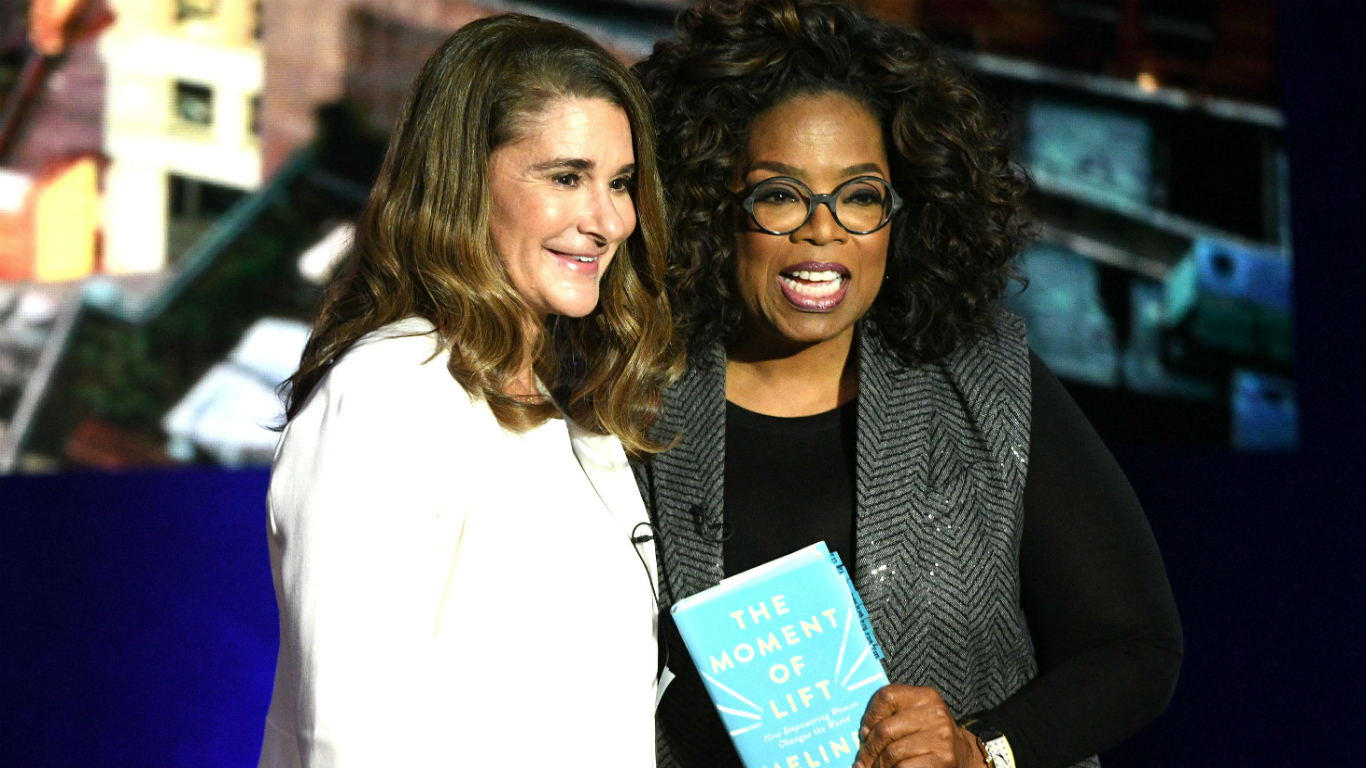
What defines power? Is it money or the ability to effect change? Or perhaps it is a combination of the two. The world’s most powerful women certainly possess some or all of these traits. Many have overcome significant challenges and hurdles, becoming the first females to hold leadership positions in their industry.
24/7 Wall St. compiled a list of the most powerful women based on their achievements and their notoriety. Divided into political and philanthropic leaders, financial and business leaders, and media and entertainment leaders, these women are publicly considered power players, showing their influence through their leadership and ability to affect the public.
These are women who also often appear on rankings of influential people in different industries. They have changed power structures and led the way for other women, thus creating a lasting impact.
The women on this list are leading and building multi-million and billion dollar businesses. They are also making decisions that will affect generations. These are difficult achievements in areas, such as politics and technology, where top jobs have historically been held by men. Some of the women on the list are using their money, position, and fame to empower other women or help the poor and underprivileged around the world.
Click here to read about the most powerful women in the world.
Government and Politics
[in-text-ad]
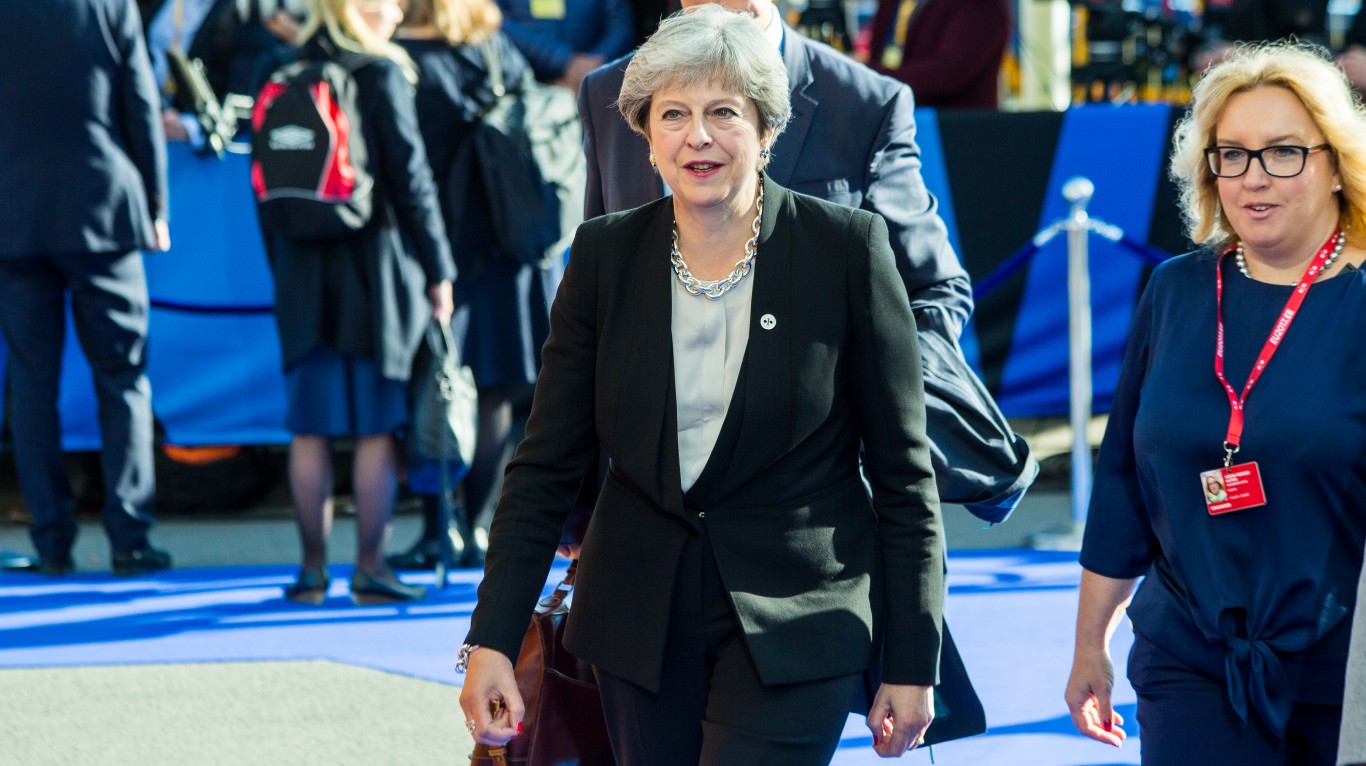
Theresa May
Prime Minister Theresa May is the woman in charge of Brexit, the unprecedented British exit from the European Union — a decision that will affect generations. The U.K. is due to leave the EU on March 29, 2019. The country’s effort to plan its transition has been far from smooth, but after two years of negotiations and pushbacks from all sides, EU leaders approved May’s plan in November 2018, even though the British Parliament keeps voting it down. Still, May has survived a no-confidence vote.
A Washington Post op-ed called May “the world’s most underrated leader” because most people were expecting her to fail within months of her succeeding the prime ministership after the Brexit referendum.
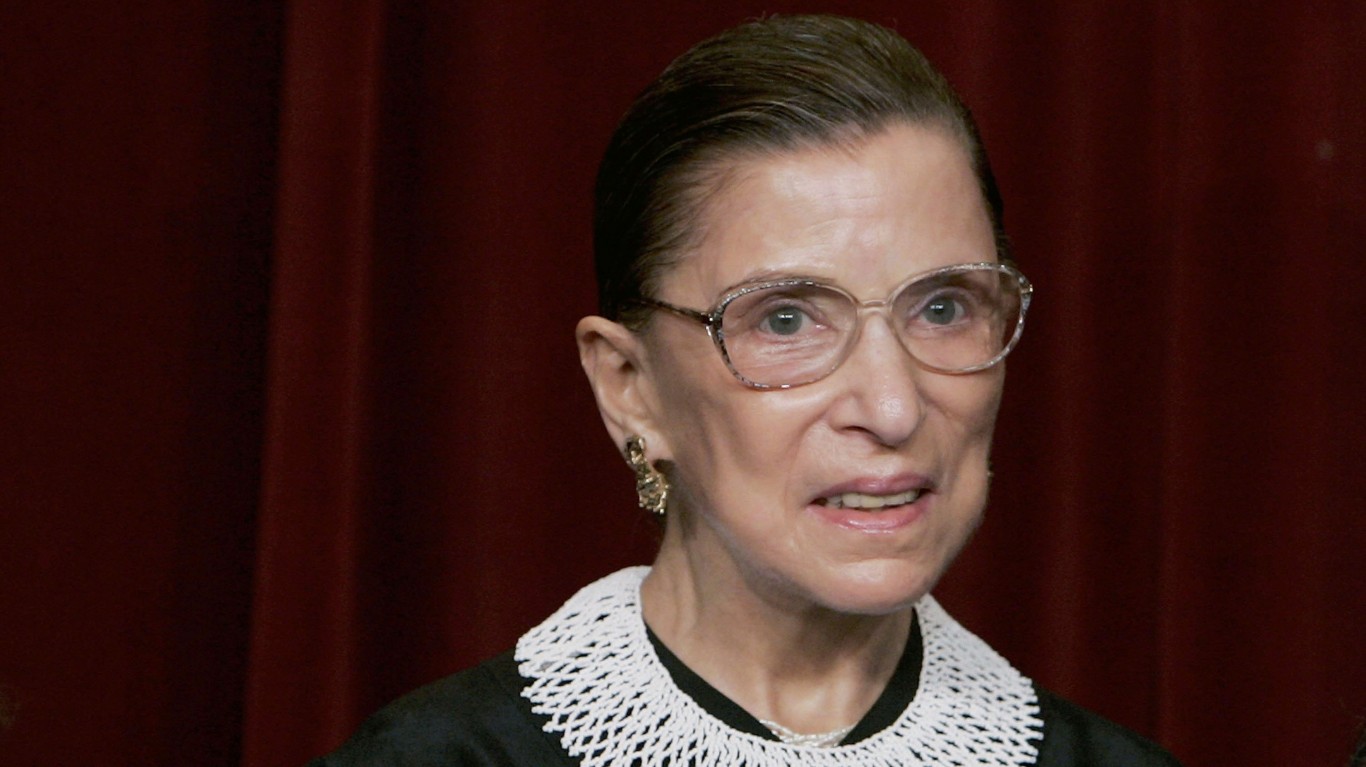
Ruth Bader Ginsburg
The announcement of Supreme Court Justice Ruth Bader Ginsburg undergoing cancer surgery sent shockwaves around the country among liberals worrying that President Donald Trump may get to appoint yet another conservative judge to the Supreme Court. The fact that even celebrities and activists signed “get well soon” cards, some saying Ginsburg is a powerful voice for truth, is indicative of her significant influence. Even before she joined the court, Ginsburg was a leading lawyer for women’s rights.
Ginsburg has gained particular notoriety in recent years, with a documentary, feature film, and even on Tumblr, when an account branded her the “Notorious RBG.” (There is also a coloring book with RBG theme.) Ginsburg is the oldest sitting justice, at 85, and should her seat become available, this could further shift the court to the right and make it more conservative. A third of the court, all three women, were nominated by Democratic presidents and have similar voting records on the bench.

Nancy Pelosi
The highest ranking woman in Washington, Nancy Pelosi made history in 2007 by becoming the first female Speaker of the House of Representatives. With an historic midterm win for the Democratic Party in 2018, she became speaker for the third time in January 2019, and with it, second-in-line to the presidency. Her ascension to the leadership position, however, was a point of contention. Pelosi, 78, has represented San Francisco’s 12th District in Congress for 31 years, and some in her party wanted fresh leadership. So far, she has shown that experience matters â from her handling of the government shutdown and controversial remarks by freshmen members of her party to dealing with her party’s own conflicting agendas.
[in-text-ad-2]
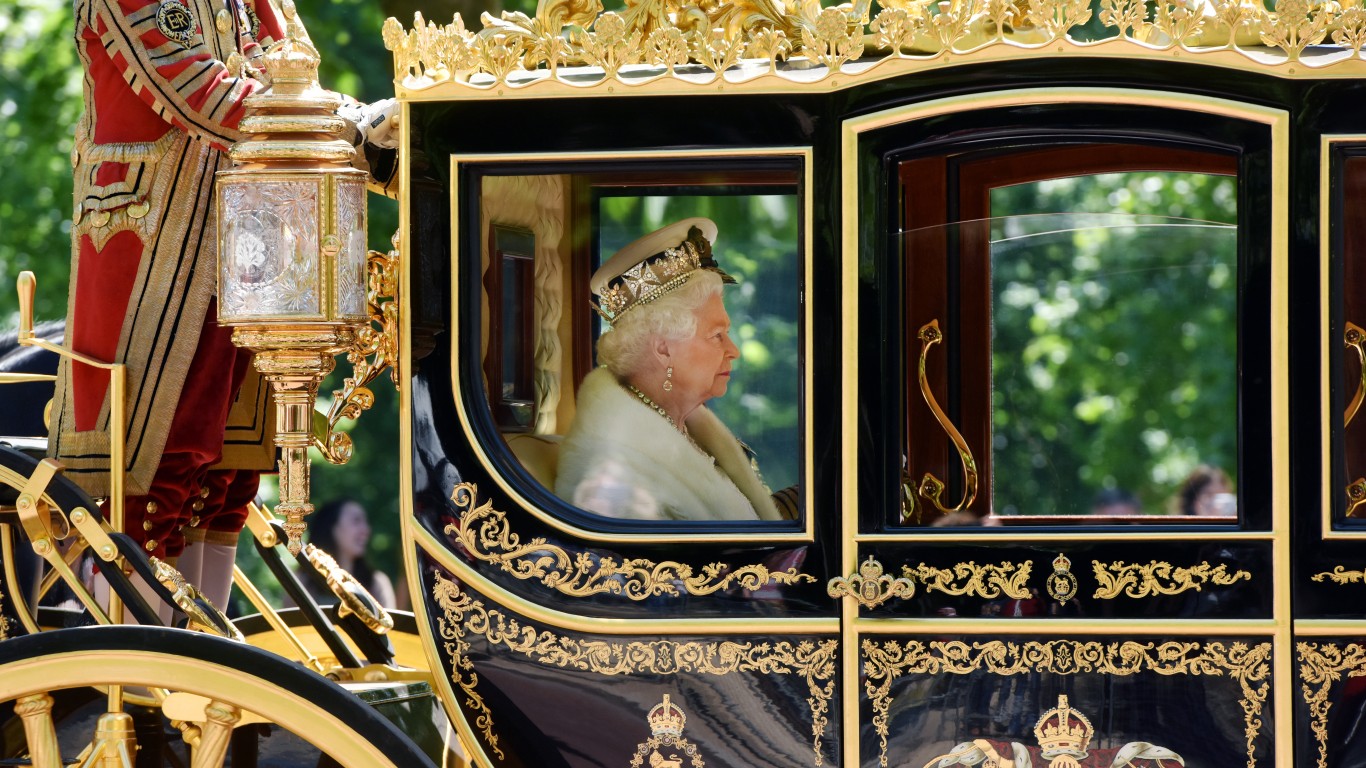
Queen Elizabeth II
Even though she has no decision-making political power, Queen Elizabeth II still has influence over public events. At age 92, she is the longest reigning monarch in British history, holding the crown for 66 years. Following the death of Princess Diana in 1997, the Queen, and the royal family in general, were unpopular, especially over their subdued reaction. In recent years, the queen has become much more popular and has remained a steady figure in the royal family, which has gone through its share of scandals. She is the patron of more than 500 charities for various civic causes, which have raised more than $1 billion throughout her reign. Currently, she is the most admired non-American woman in the United States. Among the British people she only has her grandson Harry as competition for the most popular royal.
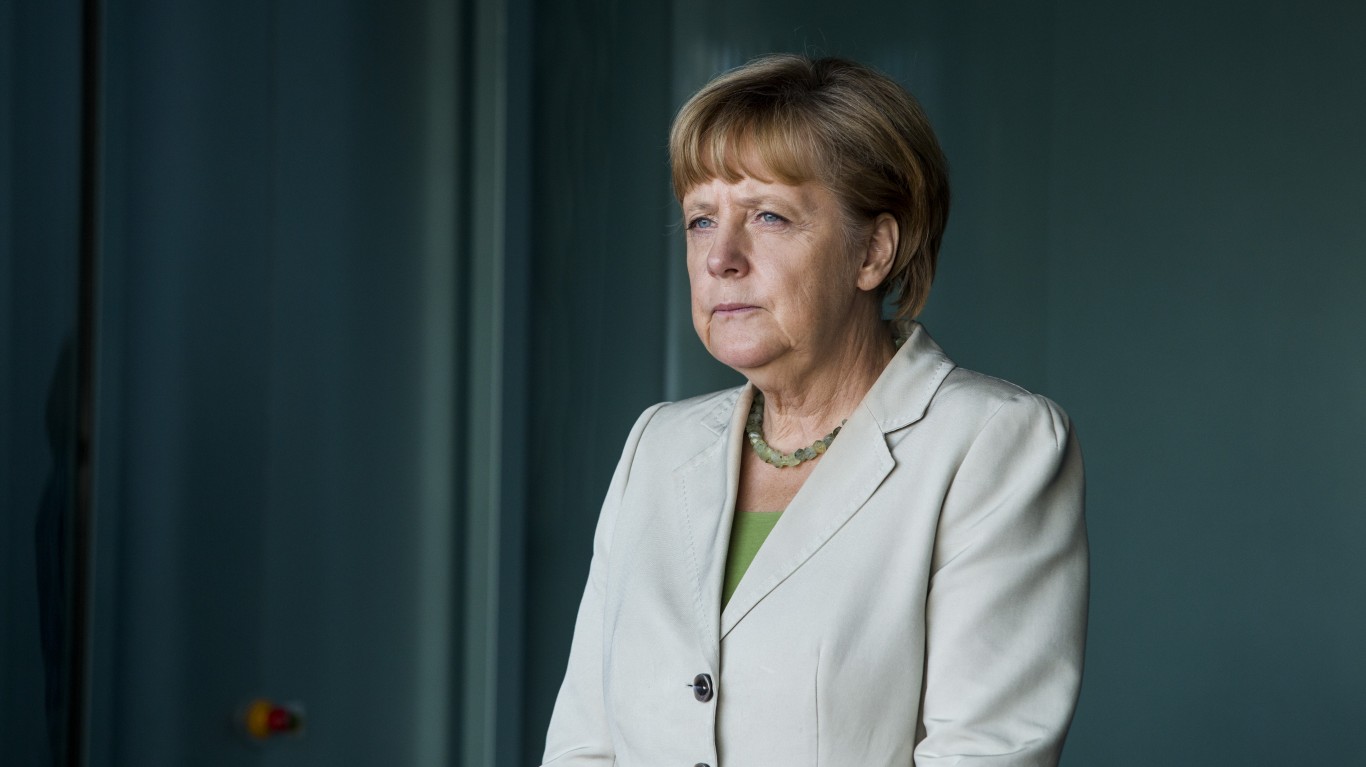
Angela Merkel
Angela Merkel made history in 2005 when she became Germany’s first female chancellor, a position she has continued to hold for four terms. Leading the biggest economy in Europe, Merkel, 64, is considered the most powerful leader in the European Union. Her name is synonymous with stability, which is why Germans call her Mutti, or Mother. Big decisions in the EU are not made without Merkel. Many even named her “leader of the free world” after Donald Trump was elected president of the United States in 2016.
But Merkel does not plan on staying at the top: Merkel announced in NOvember she would not seek another term as chancellor in 2021, and she has already stepped down as the leader of her Christian Democratic Union.
[in-text-ad]
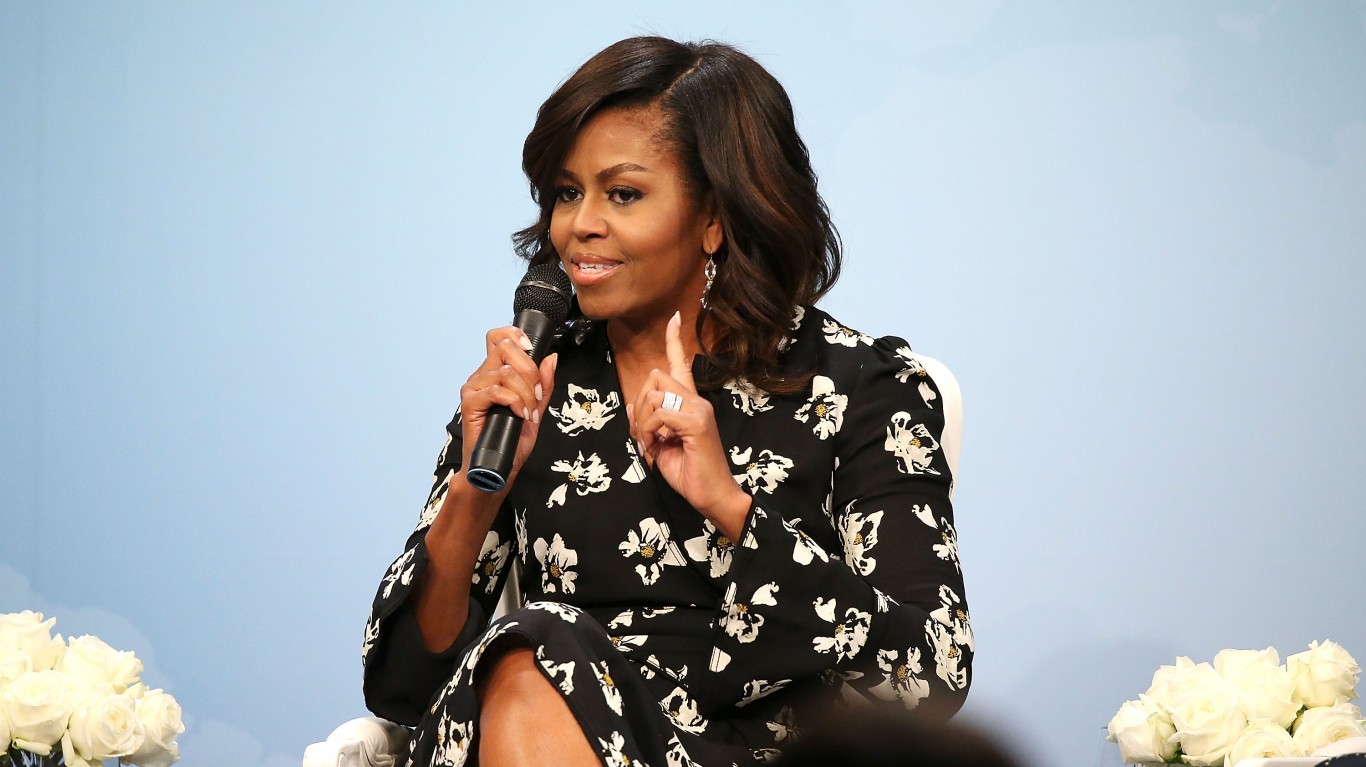
Michelle Obama
Michelle Obama may no longer be first lady, but she is still America’s favorite one. Named 2018’s most admired woman in America, she not only beat out the current first lady, Melania Trump, but also for the first time in 17 years bumped Hillary Clinton from the top of the list. The list asks Americans who they admire most, living anywhere in the world. Obama earned 15% of the votes, followed by Oprah Winfrey, with 5%. Gallup, which administers the poll, attributed the change in ranking to Clinton’s retreatment into private life. Obama’s autobiography “Becoming” sold more than 1.4 million copies in its first week. Her activism work has been focused on military families, how women can balance career and family, and on encouraging national service.
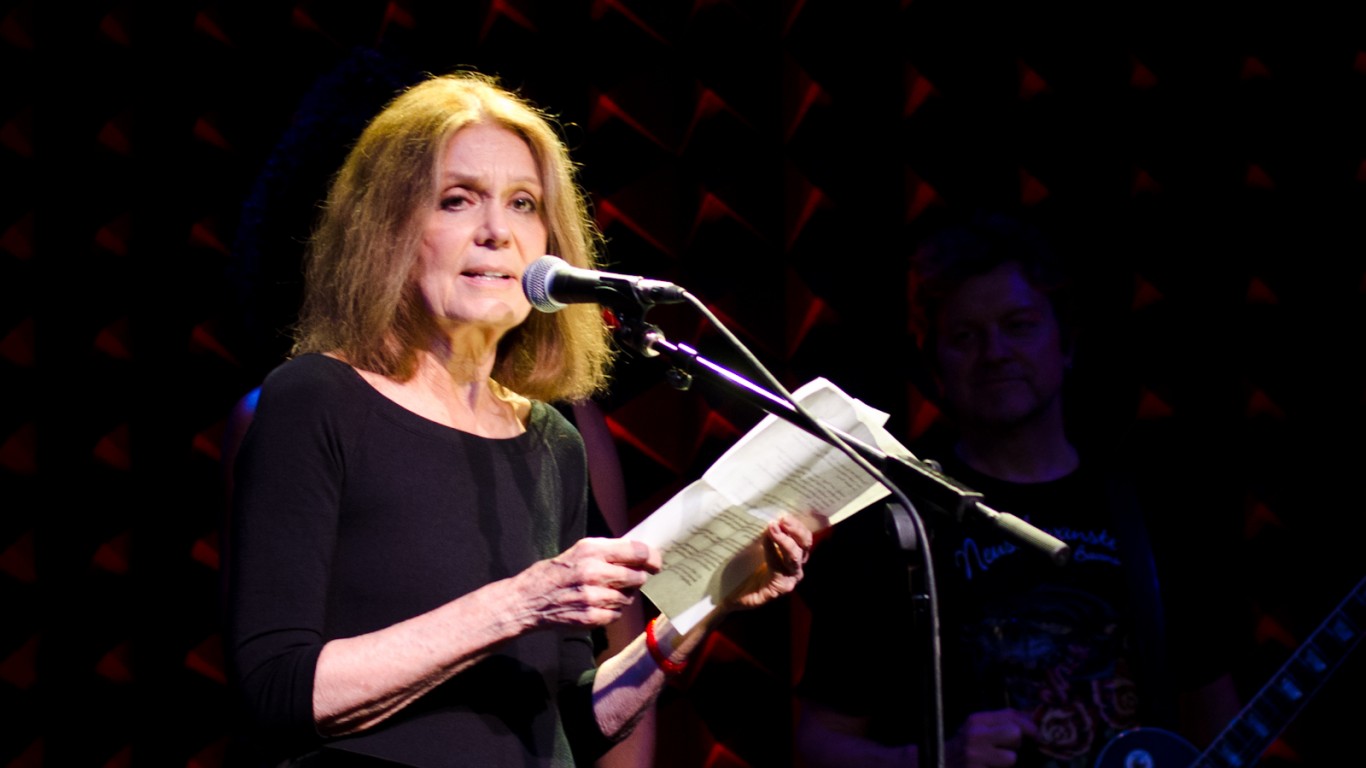
Gloria Steinem
Still active as a writer and speaker, Gloria Steinem has been one of the most powerful voices of the women’s rights movement, certainly among its most visible leaders as a journalist, editor, and co-founder of New York Magazine. Most recently, she has also become an adviser to TIME’S UP, a global movement against sexual harassment and violence against women. Steinem helped found the Women’s Action Alliance, an information center that focuses on multiracial children’s education. She also helped found the National Women’s Political Caucus, which is still active and works towards equality for women in government. President Barack Obama awarded Steinem the Presidential Medal of Freedom, the highest civilian honor, in 2013.
Entertainment Leaders
[in-text-ad-2]
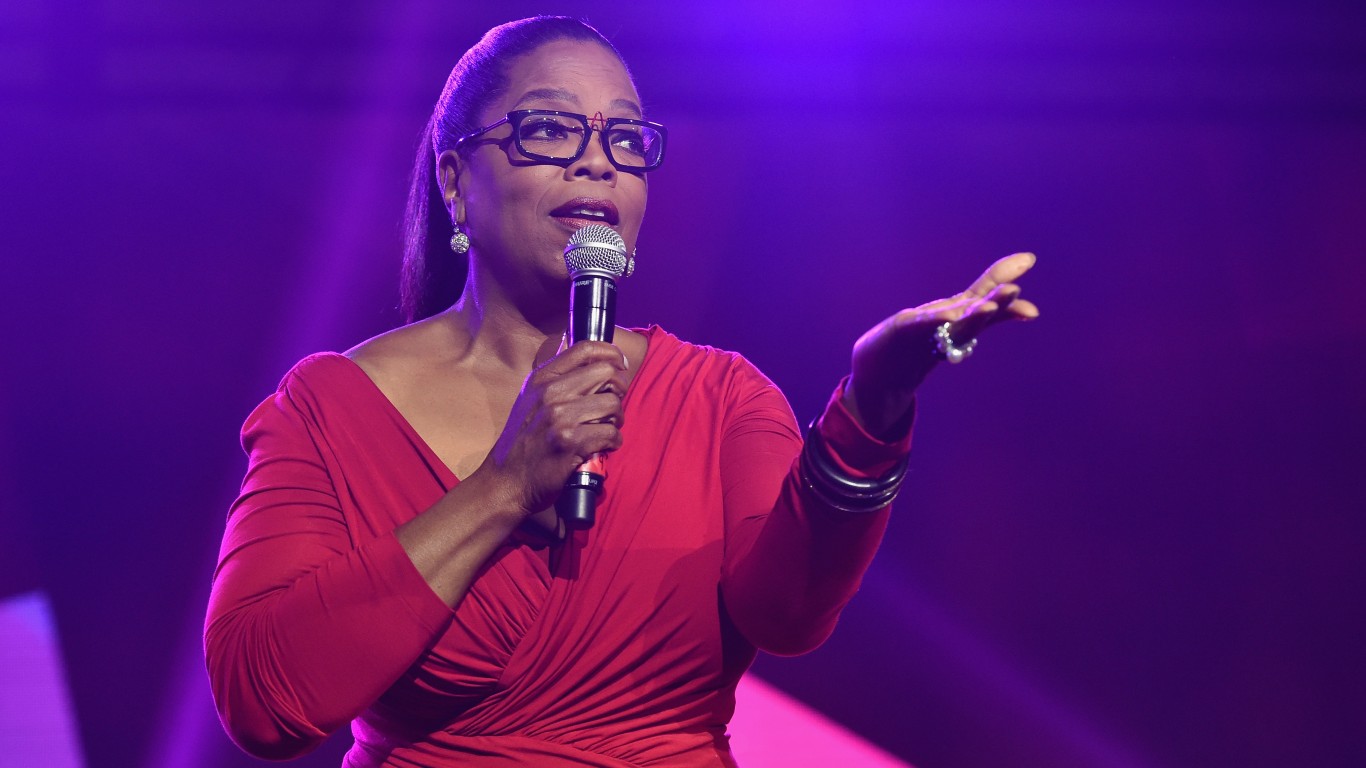
Oprah Winfrey
Between her net worth, public influence, and recently mentioned as a possible 2020 presidential candidate, Oprah Winfrey, 65, continues to top lists of media’s most powerful women. She may no longer appear daily on TV screens in millions of American homes, but she continues to preside over a massive media, entertainment, and business empire worth an estimated $2.7 billion. Since 2015, she has been a board member and brand ambassador for Weight Watchers, a position that earned her more than $400 million. She also has signed a content partnership deal with Apple. Winfrey has used her influence to help political candidates. Most recently, she campaigned for Georgia Democratic gubernatorial nominee Stacey Abrams. Winfrey’s friend and well-known spiritual guru, Marianne Williamson, has announced her intention to run for president.
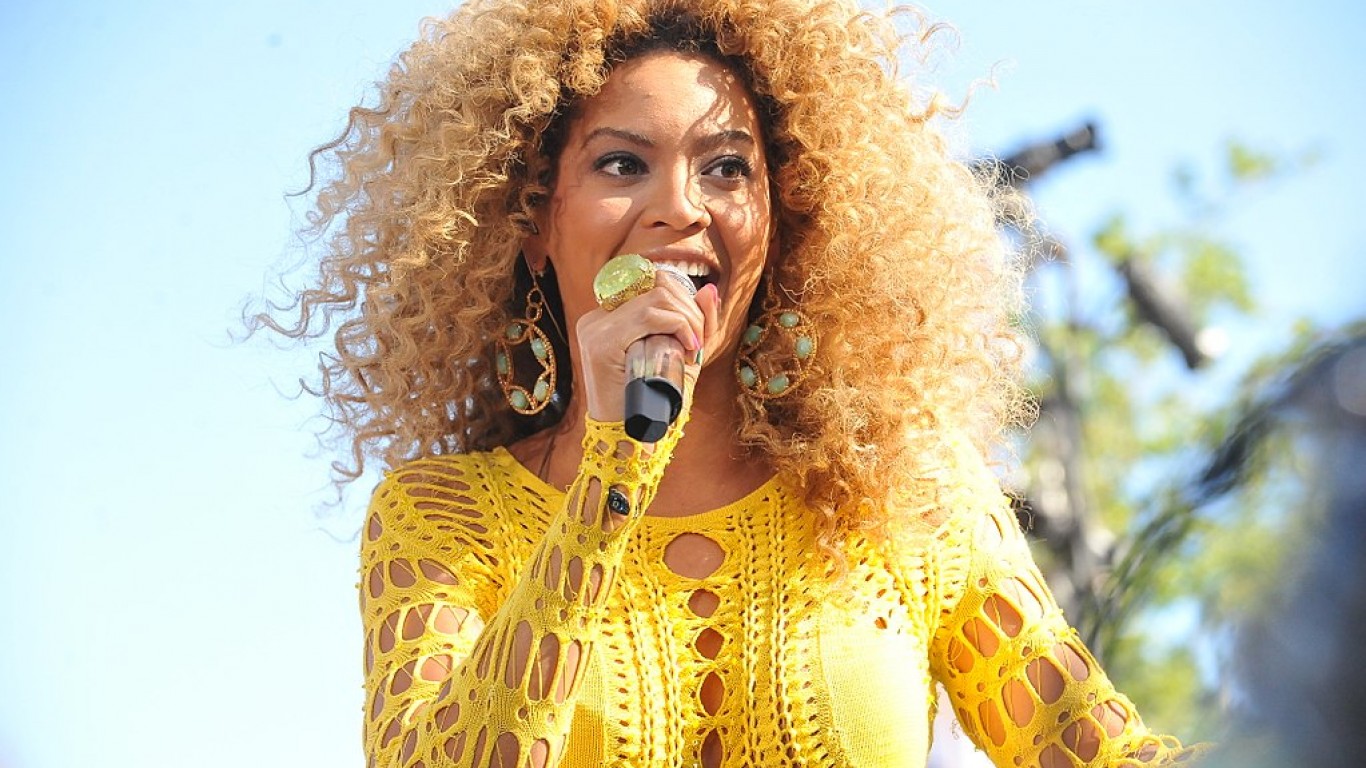
Beyoncé
Earning $60 million in 2018, with her On The Run II tour with husband Jay-Z grossing around $5 million per night, Forbes ranked Beyoncé, 37, one of the highest paid female musicians. But it is more than just the Benjamins that make Beyoncé a powerful woman. Just Google Beyoncé influence to find pages of articles dissecting her effect over a generation, especially with feminist themes in her music. She even inspired a university course around black feminism and a follow-up book. Her charity BeyGOOD works to help the poor, homeless, and underprivileged across the world.
[in-text-ad]
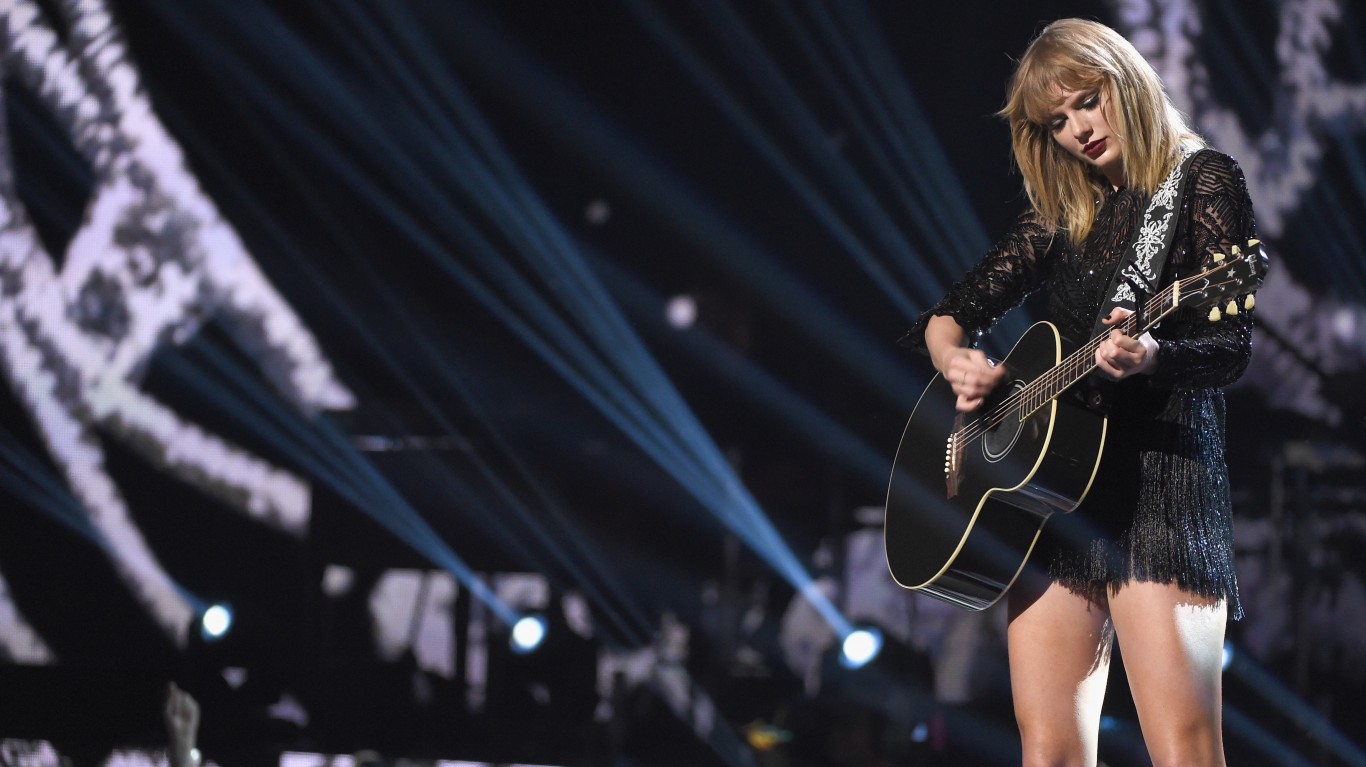
Taylor Swift
Taylor Swift dominated both Twitter and live music in 2018. With only 13 original tweets, she was named the most influential woman on Twitter last year, based on her genuine engagement. She even used the power of social media to encourage people to vote for the 2018 midterms. Her tweet contributed to a spike in voter registration. At 28-years-old, the pop star also landed the No. 2 spot for the world’s highest paid women in music last year. Her Reputation tour is officially the highest grossing tour in U.S. history at $266 million.
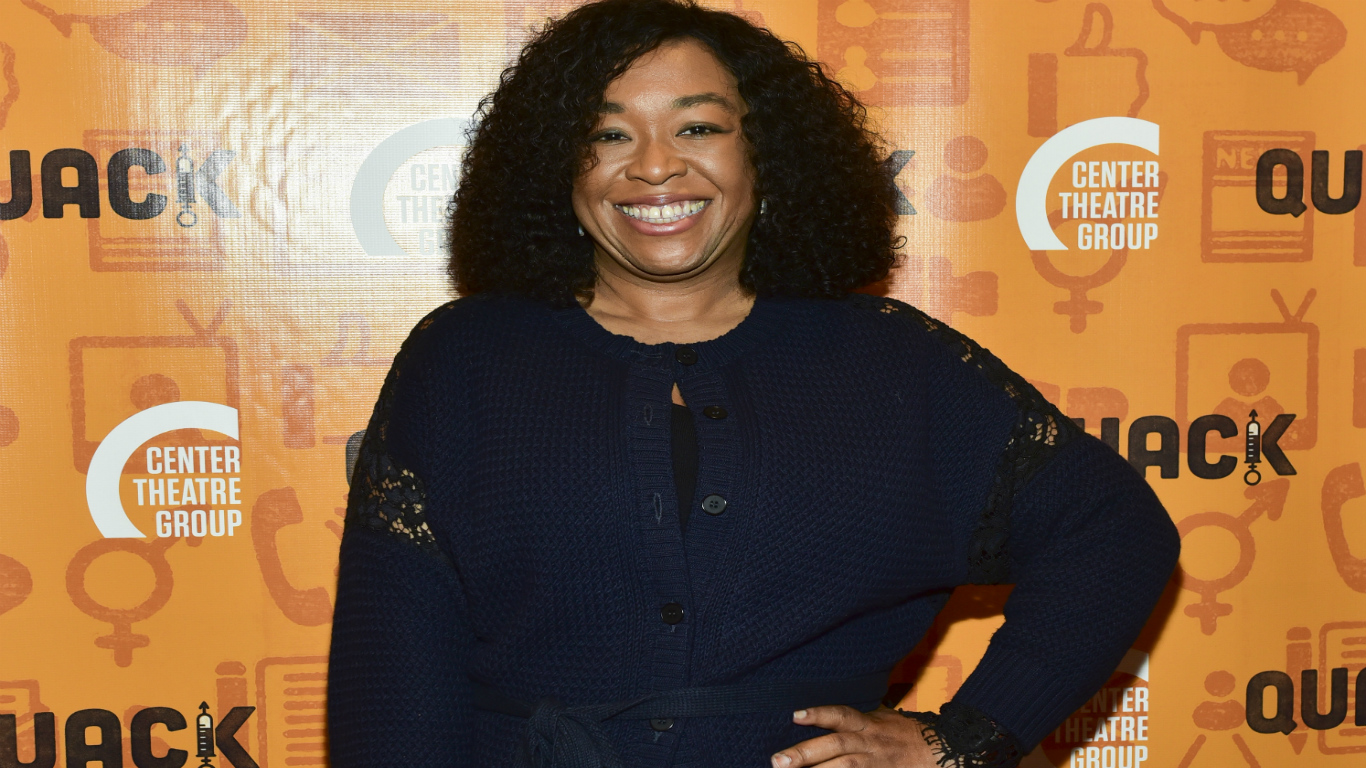
Shonda Rhimes
Shonda Rhimes is first woman to create three hit shows with more than 100 episodes each. She currently owns Thursday nights on ABC. She created the critically acclaimed dramas such as “Grey’s Anatomy,” “Scandal,” and “How to Get Away With Murder” through her company Shondaland. Rhimes is worth an estimated $135 million and is known as the wealthiest female showrunner in Hollywood. In 2017, she inked a four-year deal with Netflix worth at least 300 million, expanding her TV empire outside ABC. Perhaps Rhimes’ reach is best summed up in her 2016 TED talk: “My television shows are back to back to back on Thursday night. Around the world, my shows air in 256 territories in 67 languages for an audience of 30 million people.”
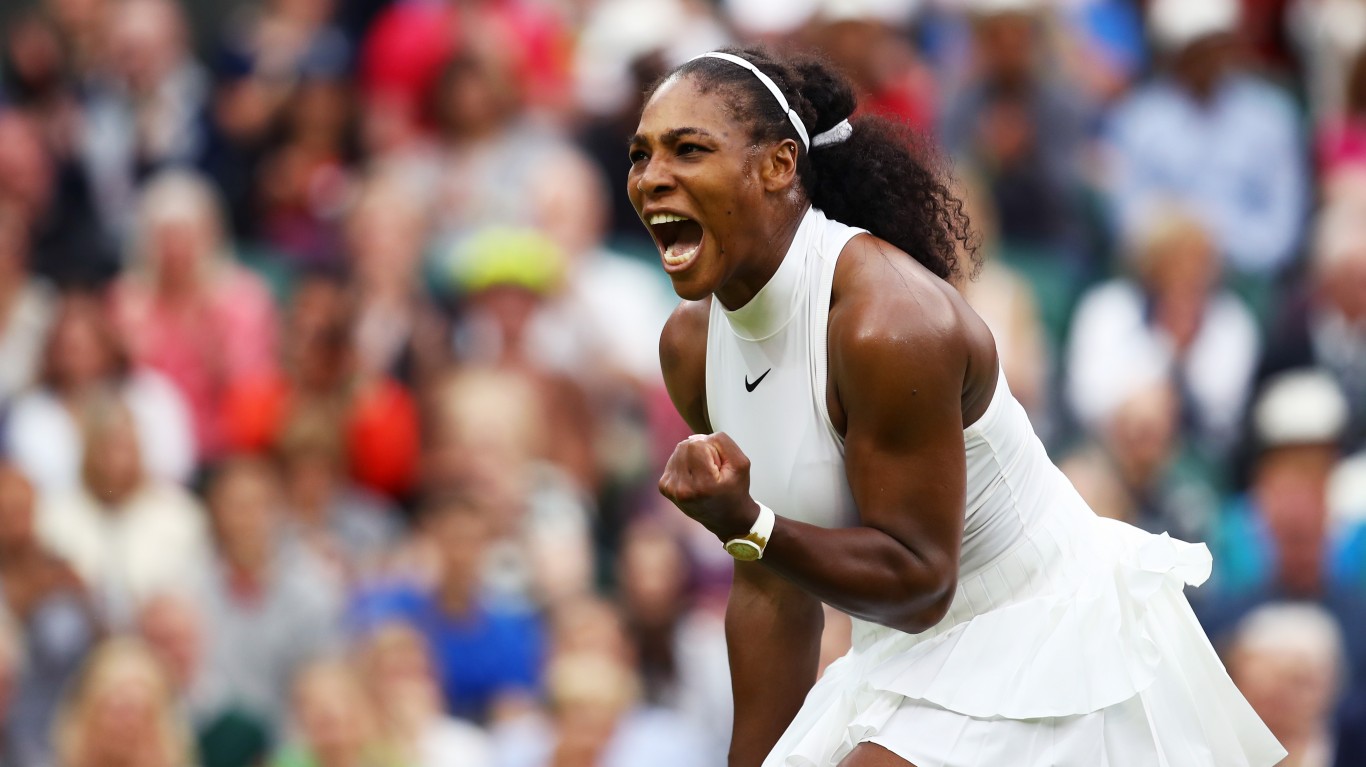
Serena Williams
Serena Williams is Forbes’ highest paid female athlete for the third straight year with earnings of more than $18 million. The 23-time Grand Slam winner also made headlines in 2018 as GQ’s “Woman of the Year.” She is one of the only females to ever be named to the traditional men’s only list. Over the years, she has inspired a generation of girls and boys to start playing tennis, some of whom are now playing her for championship titles. At 37, Williams launched her own clothing line, Serena, in 2018 and she returned to tennis after a 14-month maternity leave. ESPN called it, possibly her most impactful year yet, not for her athleticism, but for her ability to use her voice to empower women to balance work and family, just like she is doing. Williams is also a philanthropist. She opened a secondary school for underprivileged children in Kenya in 2008.
[in-text-ad-2]

Priyanka Chopra
Priyanka Chopra may not be the most famous or highest paid actress in Hollywood, but she is perhaps the most successful Bollywood actor to cross over to Hollywood, according to Forbes. Chopra, 36 is also the first Indian actor to lead an American drama series in ABC’s “Quantico.” Her production company, Mumbai-based Purple Pebble Pictures, promotes Indian filmmaking and talent. She is also a UNICEF Goodwill Ambassador. Chopra’s courtship and lavish wedding with the much younger Nick Jonas has also put her in the spotlight recently.
Financial & Business Leaders
[in-text-ad]
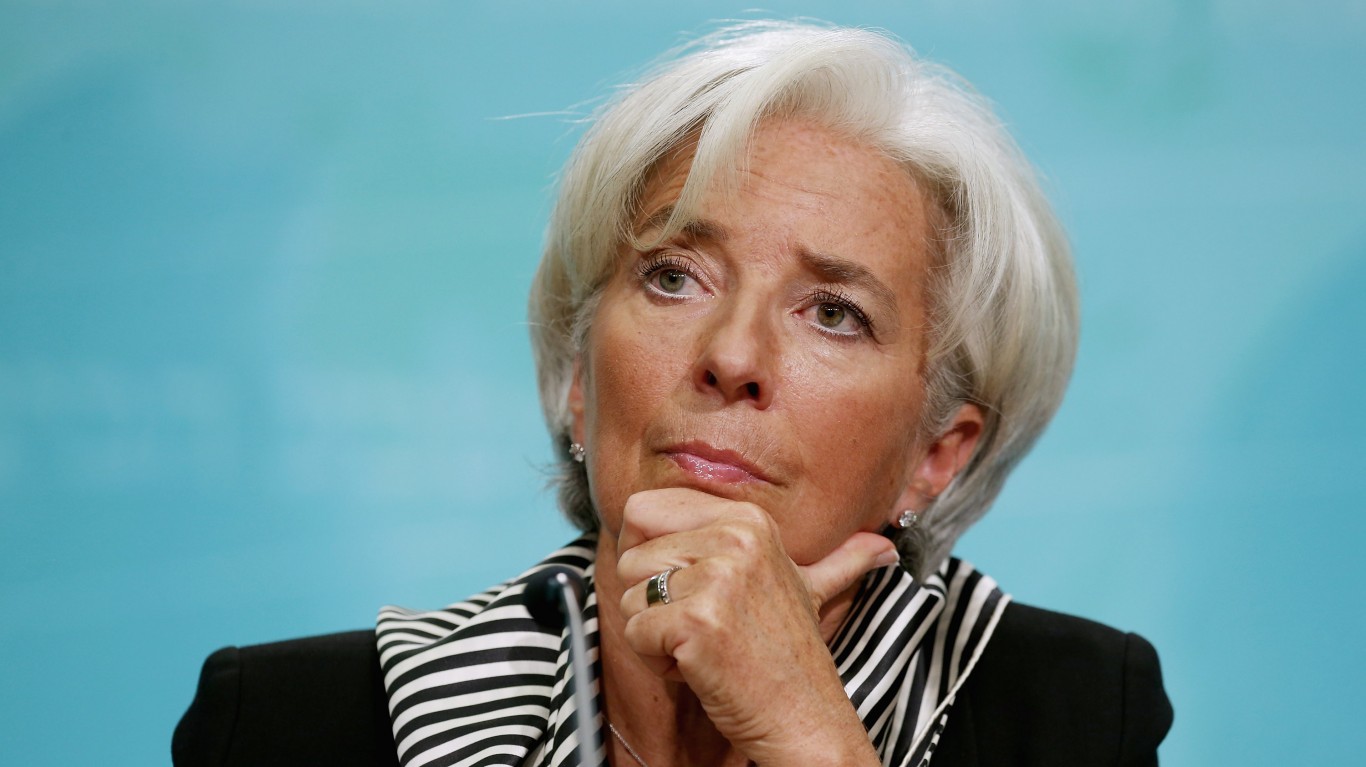
Christine Lagarde
Head of the International Monetary Fund since 2011, Christine Lagarde is the first woman to hold the position. IMF’s mission is to ensure the stability of the international monetary system for its 189 member countries. If a country is struggling with a financial crisis, Lagarde plays a role in solving it. She was re-appointed in July 2016 for a second term. Among the major issues she faced during her tenure leading the IMF was the Greek debt crisis and, more recently, the trade war between the United State and China.

Marillyn Hewson
Marillyn Hewson is the chairman, president, and CEO of defense contractor Lockheed Martin. She had headed the nation’s largest government contractor and Pentagon’s top weapons supplier since 2013. Hewson, 64, has helped increase Lockheed’s market value to nearly $100 billion. Currently, she is focusing the company on international expansion and on developing a supersonic aircraft that breaks the sound barrier without a sonic boom.
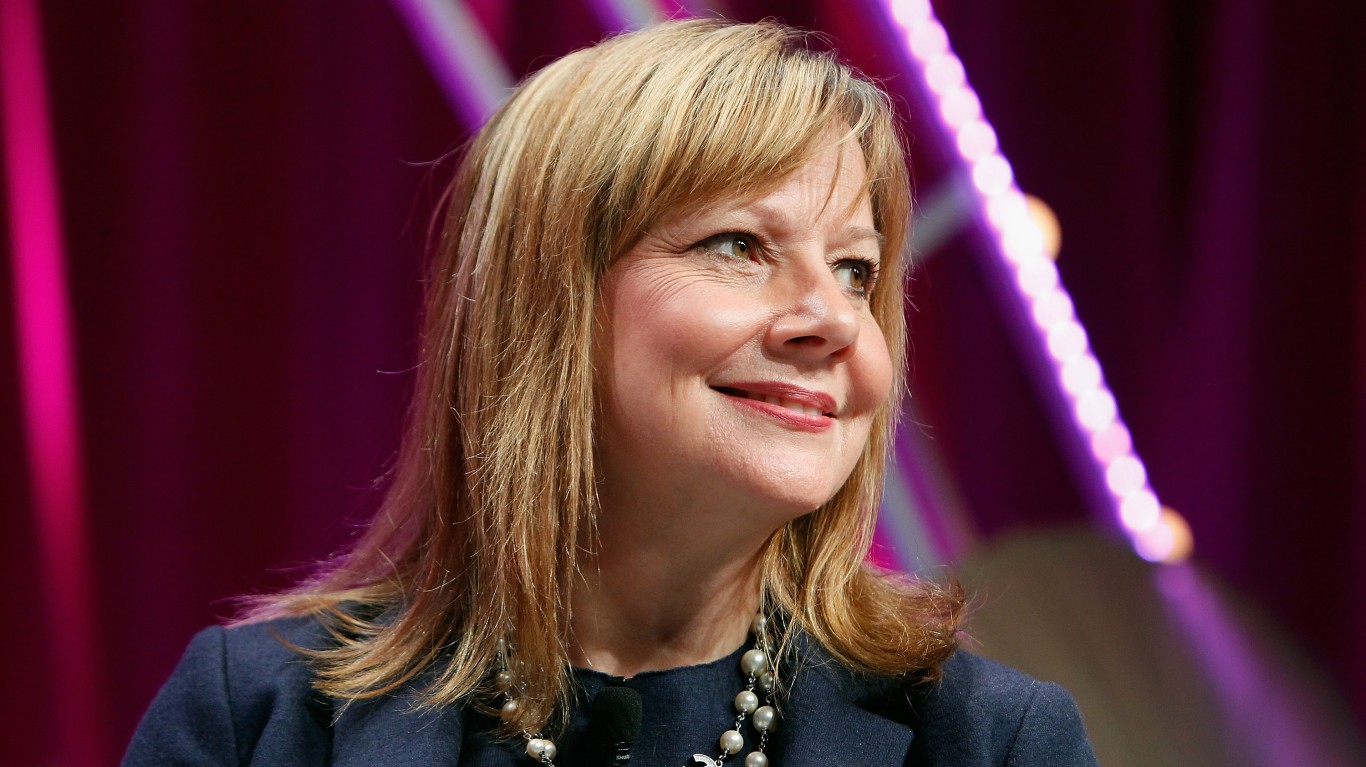
Mary Barra
Mary Barra, 57, made history as the auto industry’s first female CEO in 2014. She earned $22 million in 2017, the highest compensated leader of the Detroit Big Three automakers. Since the start, Barra has faced both challenges and successes as CEO. She immediately had to deal with the company’s largest ever recall, caused by a faulty ignition switch, which led to 124 deaths. The recall cost the company more than $2 billion. In November 2018, GM angered President Trump when the company announced layoffs of 14,000 North American employees as part of a restructuring and cost-cutting plan to make the company more profitable. The restructuring plan, including the layoffs, was favored by investors, and the stock price jumped by 5%. Further steering the company into more modern technology, Barra has recently signed a deal with Japan’s SoftBank Vision Fund. SoftBand will invest $2.25 billion in GM’s autonomous-vehicle unit. GM plans to launch its first self-driving cars for ride sharing in 2019.
[in-text-ad-2]
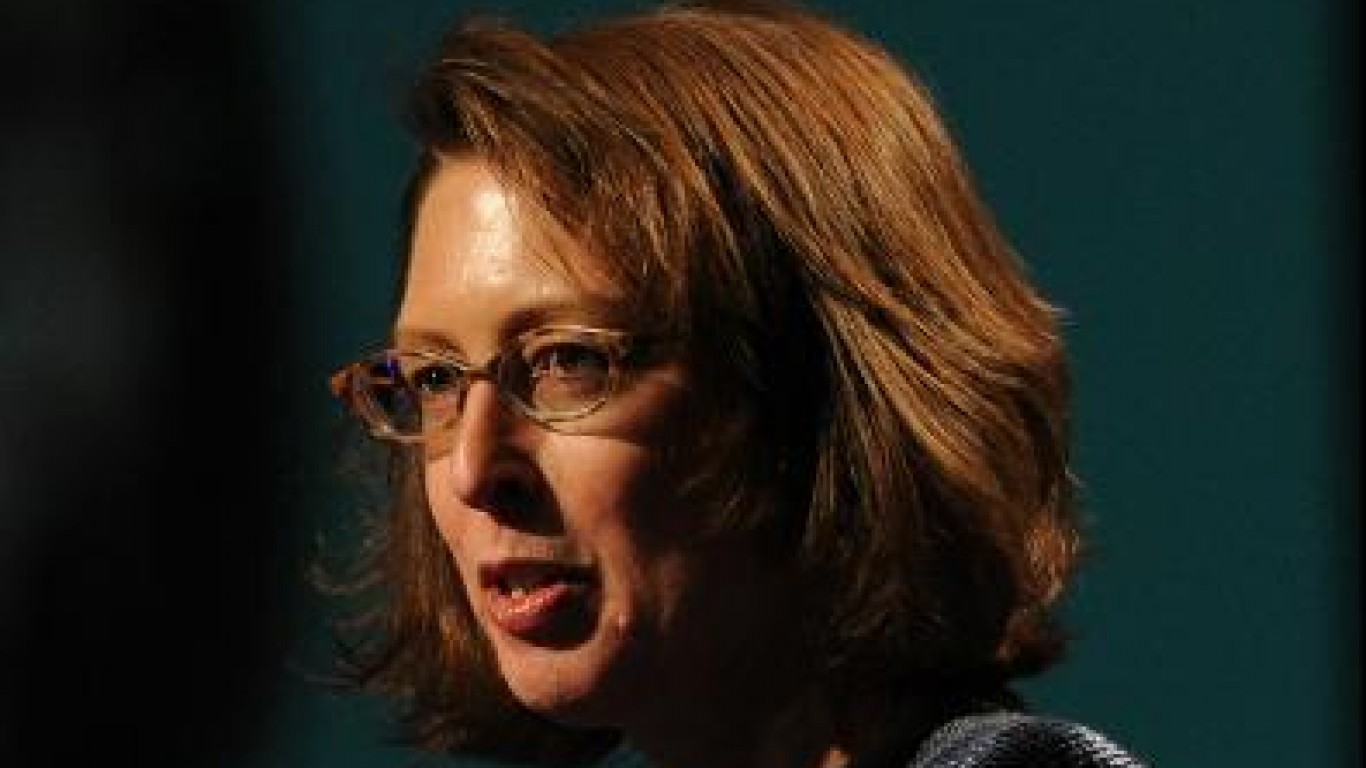
Abigail Johnson
Abigail Johnson is the chairman and CEO of Fidelity Investments, the privately held mutual fund giant her grandfather founded. She also owns an estimated 24.5% of the firm, which has nearly $2.5 trillion in assets under management. Profits at the country’s largest provider of workplace retirement savings plans grew by more than 50% in 2017. Johnson, 57, who overcame challenges such as a sexual misconduct scandal and money-losing mutual funds, has focused on growth by launching zero-fee index funds and prioritizing women.

Ginni Rometty
Ginni Rometty, who is often listed on most powerful and influential women lists, has been making her mark at IBM for more than 30 years. The first woman to be in charge of the company, Rometty, 61, is credited for leading IBM’s transition to a data company and making it less dependent on legacy software products. IBM’s purchase of Red Hat late last year positioned it to compete with Amazon and Microsoft in cloud computing.
[in-text-ad]
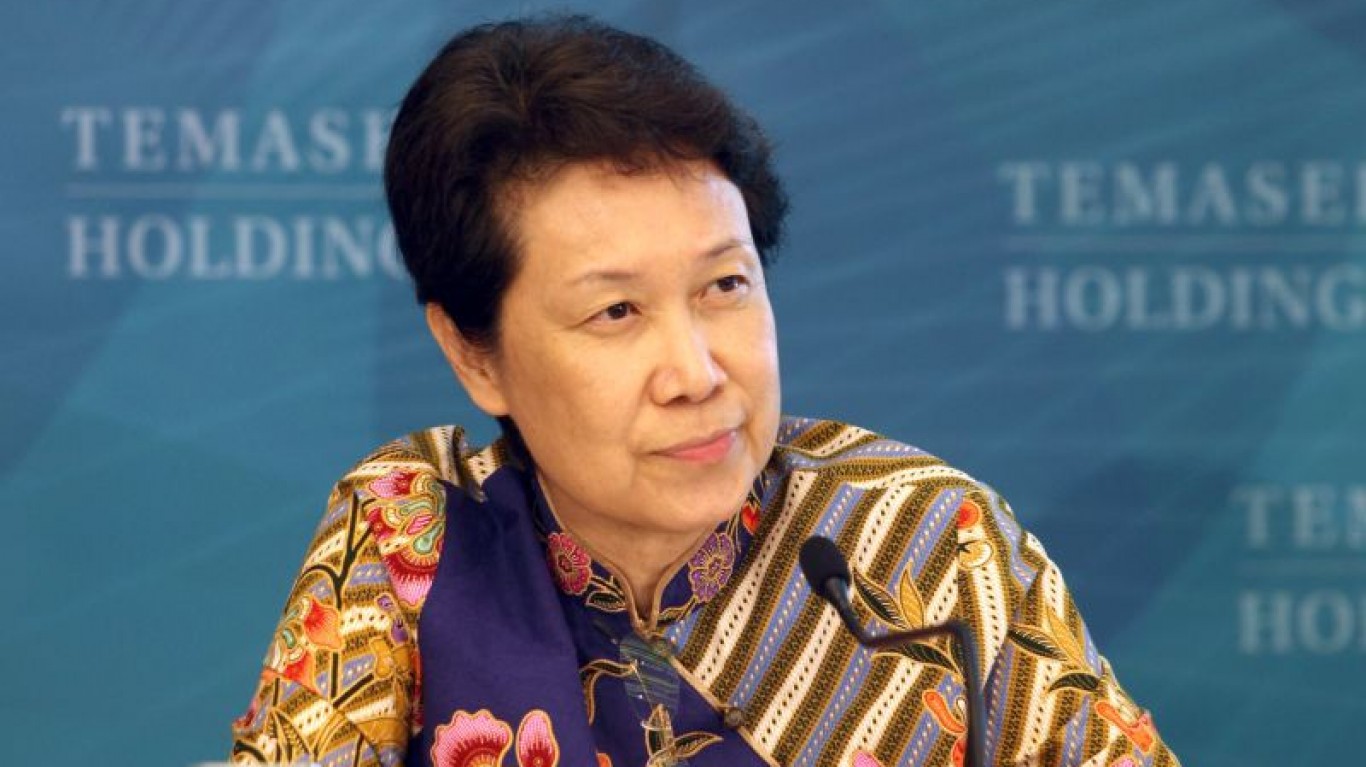
Ho Ching
Ho Ching has been the CEO of Temasek Holdings, Singapore’s sovereign wealth fund, since 2004. She has often been referred to as the face of the country’s growing economic power as the fund’s worth has grown to over $225 billion during her tenure. Temasek has made investments in financial services, media, real estate, life sciences and agribusiness, and energy in Singapore, China, Europe, and North America.

Susan Wojcicki
As one of Google’s initial employees, Susan Wojcicki saw the possibilities of YouTube while working at the search engine powerhouse in 2006. Her vision lead to Google acquiring it for $1.65 billion. Now, as YouTube CEO, Wojcicki, 50, oversees an estimated $90 billion platform. During her time as CEO since 2014, however, the platform has faced controversy. It has fared better than other social media platforms and is growing to over 1.9 billion monthly users, with new production facilities in Los Angeles to support its transition to a streaming service.
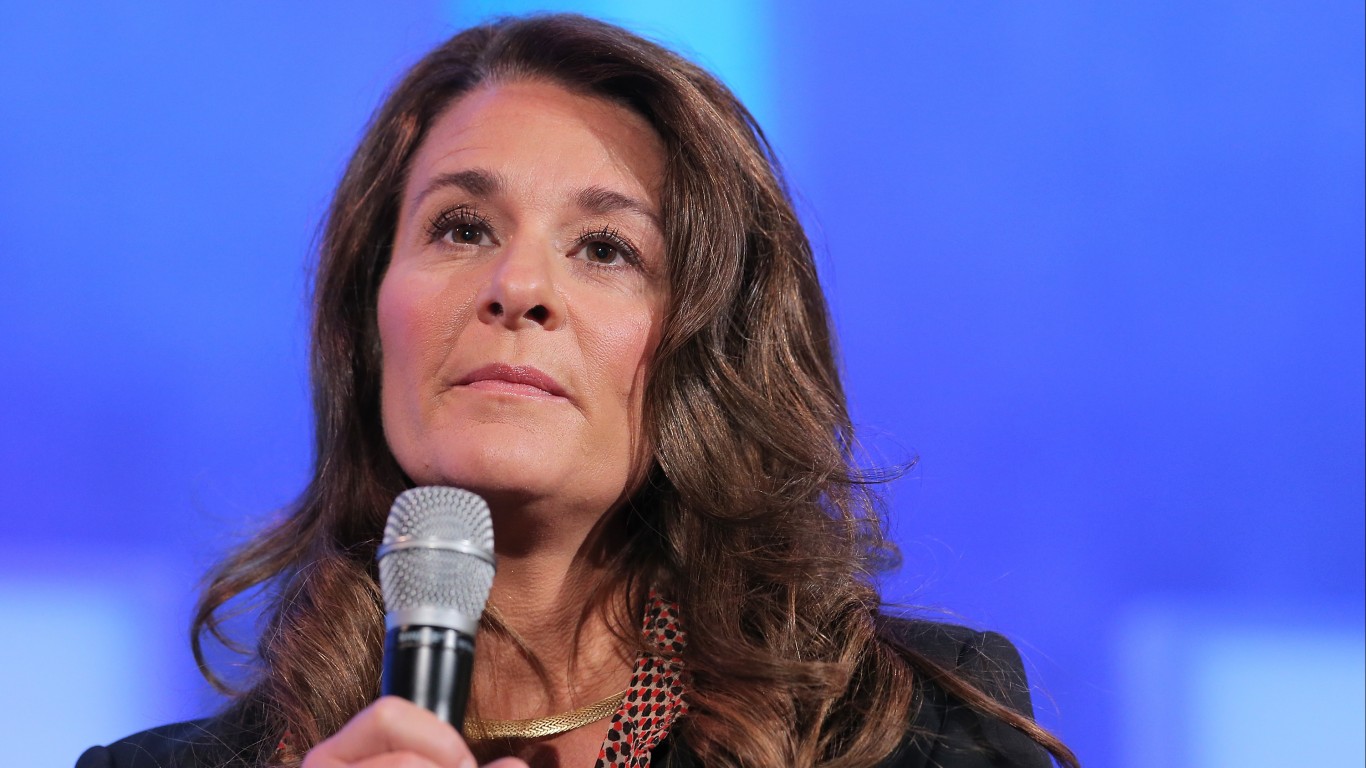
Melinda Gates
The most powerful woman in philanthropy, Melinda Gates, 54, co-chairs the world’s largest private charitable foundation. The Bill and Melinda Gates Foundation has built up more than a $40 billion trust endowment since its founding in 2000. Its mission is to take on the tough challenges of extreme poverty and poor health in developing countries as well as the failures of America’s education system. Gates is also making it her goal to empower other women. In 2018, she said in a Quartz op-ed that she aimed “to help tear down the barriers that keep half the world from leading a full life.” The foundation, she added, plans to spend $170 million over the next four years to promote women’s equality.
Thank you for reading! Have some feedback for us?
Contact the 24/7 Wall St. editorial team.
 24/7 Wall St.
24/7 Wall St. 24/7 Wall St.
24/7 Wall St. 24/7 Wall St.
24/7 Wall St.


